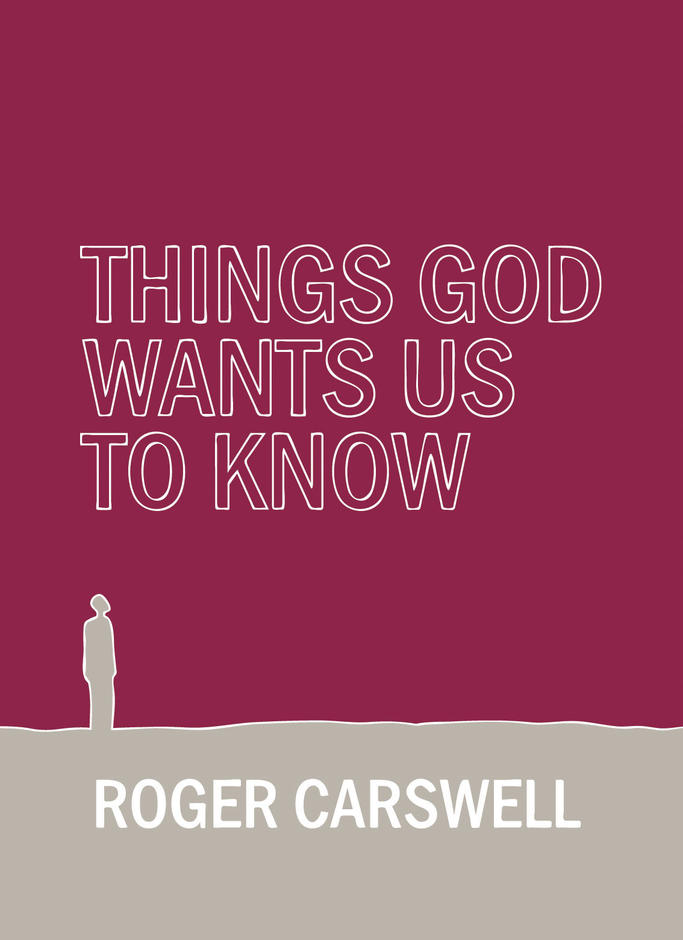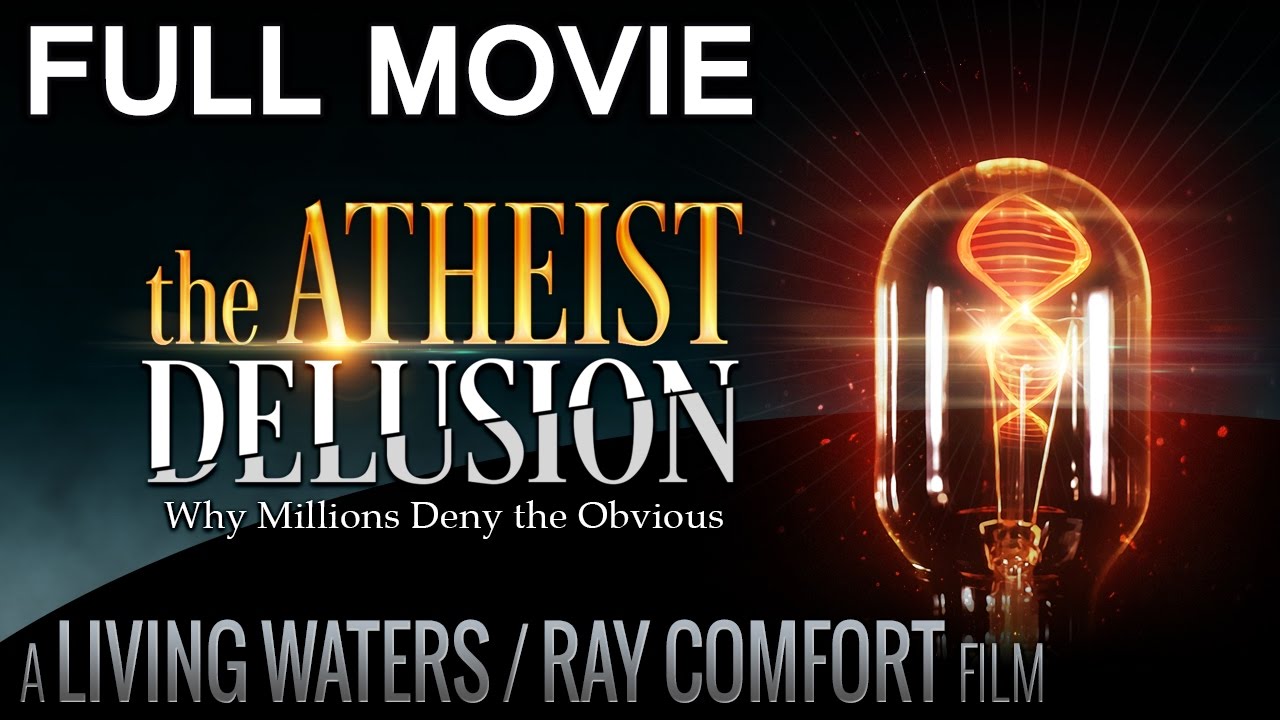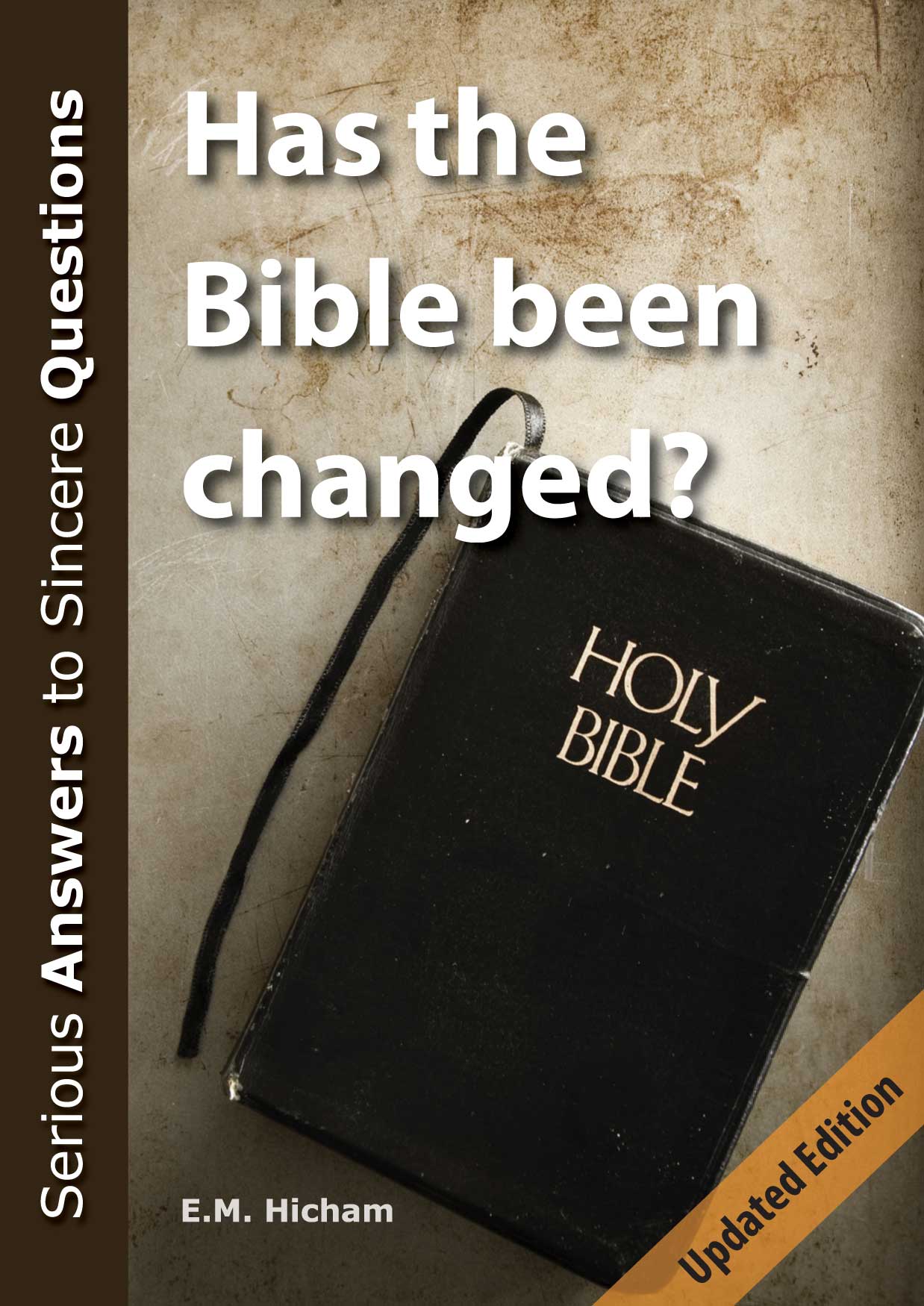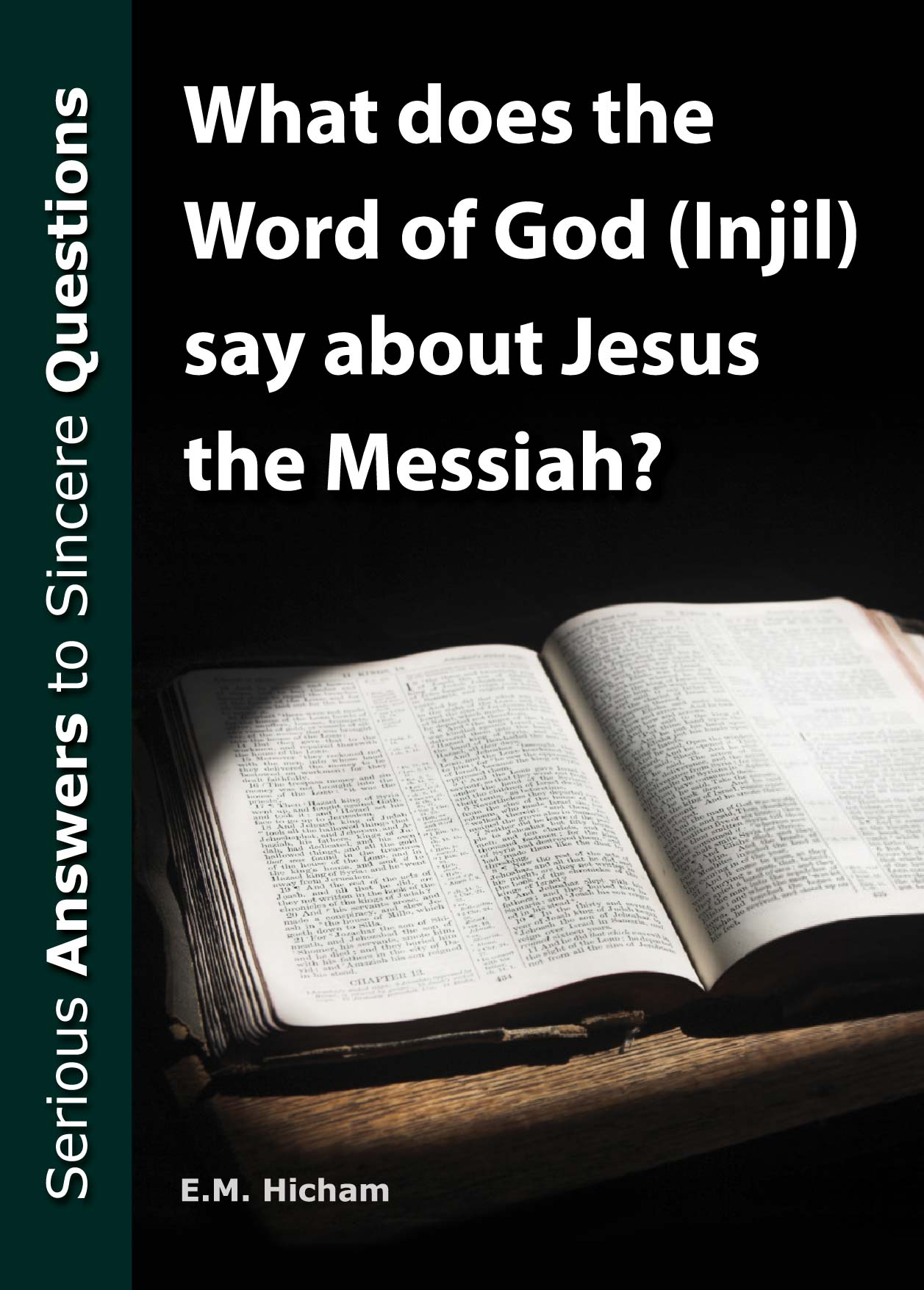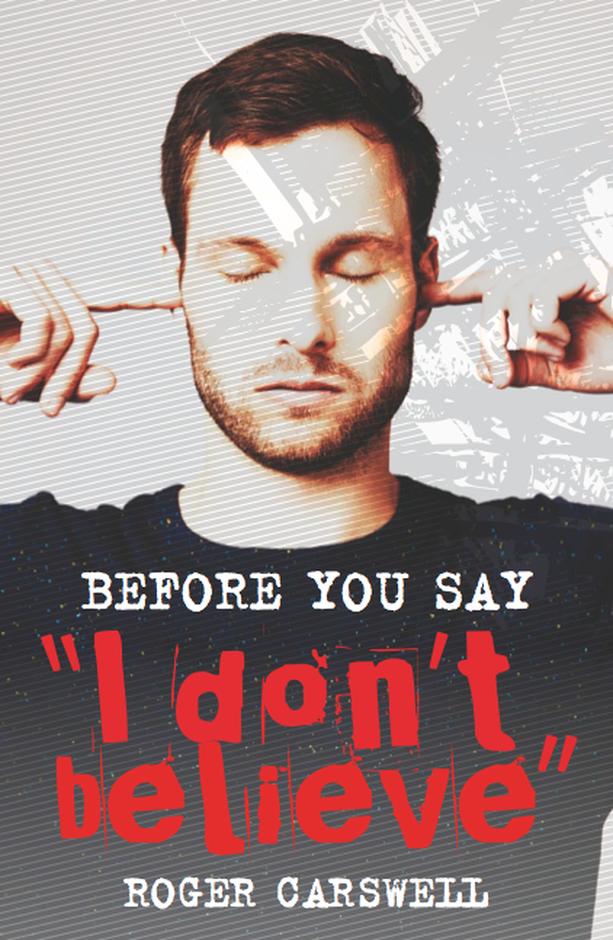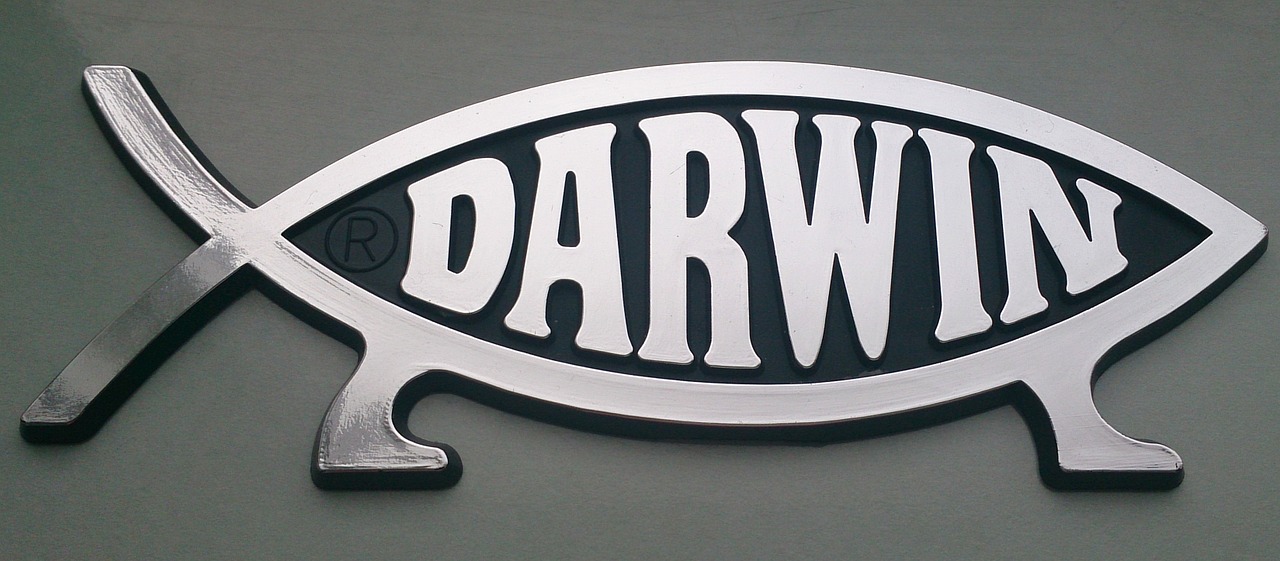Before you say, “I don’t believe.” Chapter 1.
Can you agree with Christians that questions about God are of the utmost importance?
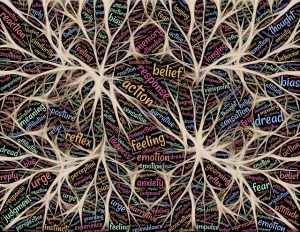 The German philosopher Goethe argued that the defining issue throughout history was the divide between the sacred and the secular.
The German philosopher Goethe argued that the defining issue throughout history was the divide between the sacred and the secular.
There is a battle for our minds that has been fought since the beginning of time, which appears to be reaching a new climax now.
Since Professor Alister McGrath published his highly acclaimed book ‘The Twilight of Atheism’ in 2004, atheism has risen up again in the West to attack traditional beliefs in God. The mass media have paraded model atheists on our television screens, our radio stations and in our newspapers and magazines. In Britain, the BBC particularly seems to be at the forefront of a continuing, unrelenting attack on Christian beliefs and standards. As well, university lecturers and school teachers have felt emboldened in their cynicism towards Christianity. (Birmingham University, for example, routinely sends an atheistic book to all freshers before arriving for their first year of study). There is an attempt to airbrush Christianity from society and history.
The result is that generations have grown who are ignorant of the Bible’s message. They are unable to recognise even the simplest Bible story, and know little about the life and work, death and resurrection of Jesus. Curiously, they have within them an antagonism to that which actually they know little about.
And yet there is an awareness that society is fractured, and, despite so much that is good, there are issues which secular humanism has not been able to answer. Without a Creator, it is impossible to have absolute standards of right and wrong, so society falls into line with the situational ethics of current whims. In mid September 2012, two policewomen were murdered whilst following up a routine call in Manchester. Local clergyman, Rev. James Halstead appeared on the television news that night and later wrote saying:
‘The events which have brought the nation’s media to our doorstep in these last weeks have been deeply shocking, not only for the families of Fiona Bone and Nicola Hughes, but also for our community and for the nation as a whole. Here is tragedy, pain and confusion in heavy measure.
‘…this is not a terrible area. Yes, this is a broken area – but as Christians we believe the whole world is a broken world …we’re not perfect in Mottram Parish – but that’s where the gospel begins: nobody is. As Christians we have the only possible way of beginning to ‘explain’ these events (though, even with the wisdom of God on our side, we can barely hope to fully understand). But we begin with a grasp of our brokenness, our fallenness. Though we haven’t shot innocent police officers, we all have minds and hearts distorted in some ways. But even as we are present and care for those affected by this tragedy, so too we have a God who cares enough for us that he comes to be present among us, to redeem us, to restore us. My walking onto Ashworth Lane that day was a very small sign, the tiniest reflection of God’s walk into this world – born as a baby, to grow and be a man amongst God’s people. Then ultimately to die – innocent and in the service of his people – to make us new. Good may come of these events, especially if it draws our communities closer together. But only the good news about Jesus Christ helps us find real and lasting hope in times like these.
‘In times of grief, fear and uncertainty, it is appropriate to defend a community against shaming accusations, provide comfort and hope to those affected, and to speak of the gracious work of God in the Lord Jesus Christ to redeem and restore a broken and sin-infected world.’
 Belief in God will hugely impact the behaviour of individuals and society and its laws. Most young people today, for example, are taught about slavery. However, they are not taught that William Wilberforce, whilst a Member of Parliament, worked for the abolition of slavery after he had come to know God, and that his conversion changed him from being a self-seeking politician to a campaigner who started 70 charities to improve the lot of people and animals. Wilberforce, in becoming a Christian, had his eyes opened to the evils in society, which he had previously accepted as normal. Then, with the increasing Christian consensus in the land, was able to bring reform in the country through legislation and his own creative endeavour.
Belief in God will hugely impact the behaviour of individuals and society and its laws. Most young people today, for example, are taught about slavery. However, they are not taught that William Wilberforce, whilst a Member of Parliament, worked for the abolition of slavery after he had come to know God, and that his conversion changed him from being a self-seeking politician to a campaigner who started 70 charities to improve the lot of people and animals. Wilberforce, in becoming a Christian, had his eyes opened to the evils in society, which he had previously accepted as normal. Then, with the increasing Christian consensus in the land, was able to bring reform in the country through legislation and his own creative endeavour.
Christian belief, though, is not about social conformity. True religion will never be an opiate to the masses. Where there is a Christian consensus, society will inevitably change. For instance, during the Welsh revival in 1904 – 1905 100,000 people were converted to Christ within just six months, and Magistrates Courts literally found themselves with no crimes to judge, such was the impact on society. A Christian consensus will stir up a desire for righteousness and justice, godliness and compassion which will be an irritant to the status quo. But real Christian faith brings about a transformation in individuals so that they experience forgiveness and a new passion to follow and serve their Lord. Throughout history people have found this to be their experience, and in the 21st century there are countless stories of how people have asked Jesus Christ to become their Lord and Saviour, experiencing Him who has radically turned around their lives, and profoundly influenced their journey through earthly life towards eternal life.
When Professor Verna Wright, a medical professor at Leeds University, was asked what were the benefits of his Christian belief, his first response was, “It gives comfort to a dying man.” Who or what, apart from God, can give meaning to life – and then to death – outside of God? John Wesley, the 18th century Christian preacher mused saying, “Our people die well!” Genuine Christians have a confidence even in death, knowing that they have been made right with God through the death and resurrection of Jesus.
Writer and literary critic A.N. Wilson shared his own journey on spiritual issues in the Daily Mail on 11th April 2009 under the title, ‘Religion of hatred: Why we should no longer be cowed by the chattering classes ruling Britain who sneer at Christianity.’ Here are some extracts from that article:
‘For much of my life, I, too, have been one of those who did not believe. It was in my young manhood that I began to wonder how much of the Easter story I accepted, and in my 30s I lost any religious belief whatsoever.
‘Like many people who lost faith, I felt anger with myself for having been ‘conned’ by such a story. I began to rail against Christianity, and wrote a book, entitled ‘Jesus’, which endeavoured to establish that he had been no more than a messianic prophet who had well and truly failed, and died.
‘Why did I, along with so many others, become so dismissive of Christianity?
‘Like most educated people in Britain and Northern Europe (I was born in 1950), I have grown up in a culture that is overwhelmingly secular and anti-religious. The universities, broadcasters and media generally are not merely non-religious, they are positively anti.
‘To my shame, I believe it was this that made me lose faith and heart in my youth. It felt so uncool to be religious. With the mentality of a child in the playground, I felt at some visceral level that being religious was unsexy, like having spots or wearing specs.
‘This playground attitude accounts for much of the attitude towards Christianity that you pick up, say, from the alternative comedians, and the casual light blasphemy of jokes on TV or radio.
‘It also lends weight to the fervour of the anti-God fanatics, such as the writer Christopher Hitchens and the geneticist Richard Dawkins, who think all the evil in the world is actually caused by religion.
‘The vast majority of media pundits and intelligentsia in Britain are unbelievers, many of them quite fervent in their hatred of religion itself.
‘The Guardian’s fanatical feminist-in-chief, Polly Toynbee, is one of the most dismissive of religion and Christianity in particular. She is president of the British Humanist Association, an associate of the National Secular Society and openly scornful of the millions of Britons who will quietly proclaim their faith in church tomorrow.
‘Self-satisfied TV personalities like Jo Brand are openly non-believers.
‘For ten or 15 of my middle years, I, too, was one of the mockers. But, as time passed, I found myself going back to church, although at first only as a fellow traveller with the believers, not as one who shared the faith that Jesus had truly risen from the grave. Some time over the past five or six years – I could not tell you exactly when – I found that I had changed.
‘My own return to faith has surprised no one more than myself. Why did I return to it? Partially, perhaps it is no more than the confidence I have gained with age.
‘Rather than being cowed by them, I relish the notion that, by asserting a belief in the risen Christ, I am defying all the liberal clever-clogs on the block: cutting-edge novelists such as Martin Amis; foul-mouthed, self-satisfied TV presenters such as Jonathan Ross and Jo Brand; and the smug, tieless architects of so much television output.
‘But there is more to it than that. My belief has come about in large measure because of the lives and examples of people I have known – not the famous, not saints, but friends and relations who have lived, and faced death, in the light of the Resurrection story, or in the quiet acceptance that they have a future after they die.
‘The Easter story answers their questions about the spiritual aspects of humanity. It changes people’s lives because it helps us understand that we, like Jesus, are born as spiritual beings.
‘Every inner prompting of conscience, every glimmering sense of beauty, every response we make to music, every experience we have of love – whether of physical love, sexual love, family love or the love of friends – and every experience of bereavement, reminds us of this fact about ourselves.
‘Sadly, they have all but accepted that only stupid people actually believe in Christianity, and that the few intelligent people left in the churches are there only for the music or believe it all in some symbolic or contorted way which, when examined, turns out not to be belief after all.
‘As a matter of fact, I am sure the opposite is the case and that materialist atheism is not merely an arid creed, but totally irrational.
‘Materialist atheism says we are just a collection of chemicals. It has no answer whatsoever to the question of how we should be capable of love or heroism or poetry if we are simply animated pieces of meat.
‘J. S. Bach believed the story, and set it to music. Most of the greatest writers and thinkers of the past 1,500 years have believed it.
‘But an even stronger argument is the way that Christian faith transforms individual lives – the lives of the men and women with whom you mingle on a daily basis, the man, woman or child next to you in church tomorrow morning.’
< Introduction ¦ chapter 2. Whether or not you believe in God, what do you think Christians believe about Him? >
>
Grill a Christian by Roger Carswell - request your free copy!
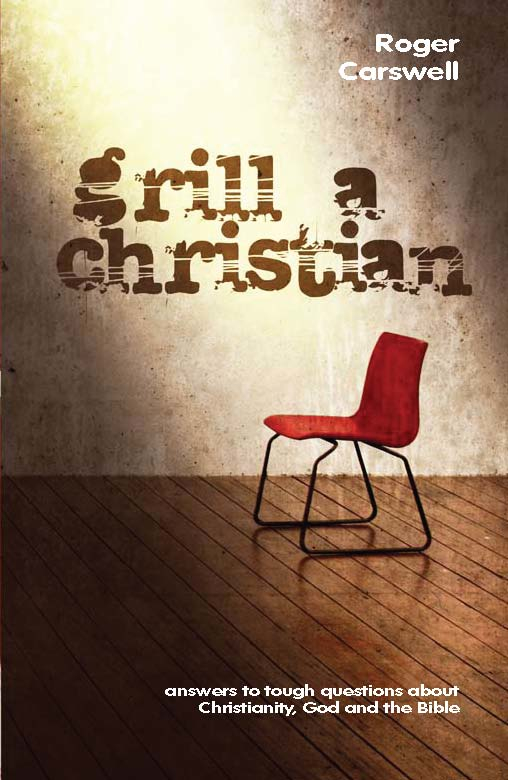
Wouldn't you just love to grab a Christian, sit them down in the hot seat and grill them mercilessly on the tough questions about God, the Bible and the world? If you have ever wished you could have your question about God answered, then this book is for you!
request now





